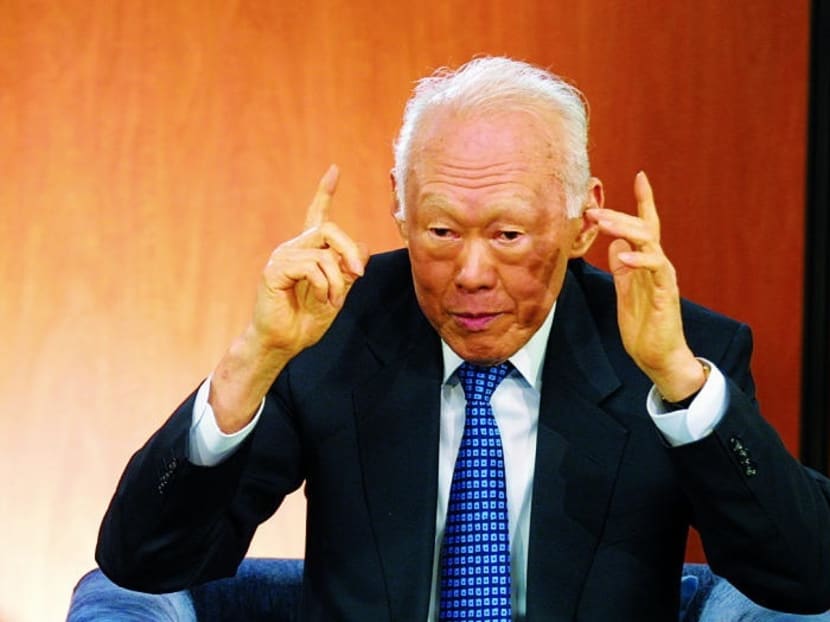Apex court dismisses appeal on Mr Lee Kuan Yew’s interview transcripts
SINGAPORE — The Court of Appeal on Thursday (Aug 18) dismissed an appeal by Dr Lee Wei Ling and Mr Lee Hsien Yang for all rights to late founding Prime Minister Lee Kuan Yew’s interview transcripts from the 1980s.

The High Court's judgment ruled that the content of the interviews was of a politically sensitive nature that the late Mr Lee Kuan Yew himself had wanted to safeguard the confidentiality of. TODAY File Photo
SINGAPORE — The Court of Appeal on Thursday (Aug 18) dismissed an appeal by Dr Lee Wei Ling and Mr Lee Hsien Yang for all rights to late founding Prime Minister Lee Kuan Yew’s interview transcripts from the 1980s.
Their rights to the copyright of the transcripts — of interviews Mr Lee Kuan Yew had done between July 8, 1981, and July 5, 1982, with the government’s oral history unit — cannot be meaningfully exercised without the consent and cooperation of the government, which owns the physical transcripts, said Chief Justice Sundaresh Menon, who ruled together with Judges of Appeal Chao Hick Tin and Andrew Phang.
And it is up to the government to provide that consent and cooperation according to what it deems in the national interest, he added in a written judgment.
Dr Lee and Mr Lee, the founding Prime Minister’s two younger children, are executors of his estate. They wanted to be entitled to use and have copies of the transcripts, and have the apex court declare there shall be no access or use of the transcripts by anyone until March 23, 2020 (five years after Mr Lee Kuan Yew’s death) without their written permission.
The case centred on an interview agreement Mr Lee Kuan Yew signed with then-Cabinet Secretary Wong Chooi Sen and Mrs Lily Tan, then-director of the Oral History Unit. The agreement governed the rights, use and administration of the transcripts until five years after his death and beyond.
CJ Menon said a key concern of the parties to the agreement was the need to sufficiently ensure no unwarranted disclosure or circulation of the material to anyone else before a suitable time had passed — and even then, only with the permission of the government.
The judges found that Mr Lee Kuan Yew’s personal right to use the transcripts did not pass to his estate. If his estate had unqualified use of the transcripts, it would potentially be an offence under the Official Secrets Act, they said. Dr Lee and Mr Lee’s “status as Mr Lee’s children does not exempt them from the operation of the OSA”, they said.
The judges said their findings are “entirely consistent with Mr Lee (Kuan Yew’s) desire to ensure that the information in the transcripts would be protected until the critical time (of his death) and even beyond that, because the interests at stake are not personal to Mr Lee but involve matters of national interest”.
“It would be very surprising if the control of such material were left to (Dr Lee and Mr Lee Hsien Yang) who, as executors, are concerned only with his personal affairs,” they said. “Relatedly, Mr Lee (Kuan Yew) gave the interviews not in his personal capacity, but in his capacity as the Prime Minister of Singapore, as part of a Government project: This too militates against the notion of such rights being vested in his personal executors.”
Before his death in 2015, a copy of the transcripts were kept in Mr Lee Kuan Yew’s house as he was working on his memoirs. After his death, a family member — who was not identified in the judgment — passed them to the Cabinet Secretary, Mr Tan Kee Yong. Dr Lee and Mr Lee discovered the transcripts had been handed over to Mr Tan only when they received a letter from him acknowledging receipt of the transcripts.
The two children then asked to look through the transcripts and Mr Lee did so at the Ministry of Home Affairs after he signed an undertaking to safeguard official information.
In July 2015, Mr Lee and Dr Lee wrote to the Attorney-General’s Chambers asking for a copy of the transcripts to be provided to them. They also asked if their father had ever given written permission for anyone else to use or have a copy of the transcripts and wanted their permission, going forward, before any access could be granted to the transcripts.
The AGC declined to provide a copy and maintained the right to grant access to the transcripts did not vest in Mr Lee Kuan Yew’s estate, and the siblings took the matter to court.






